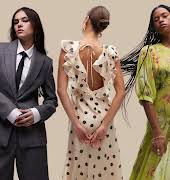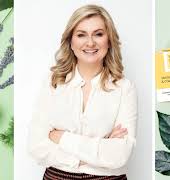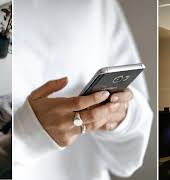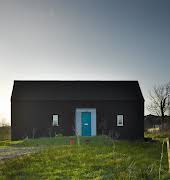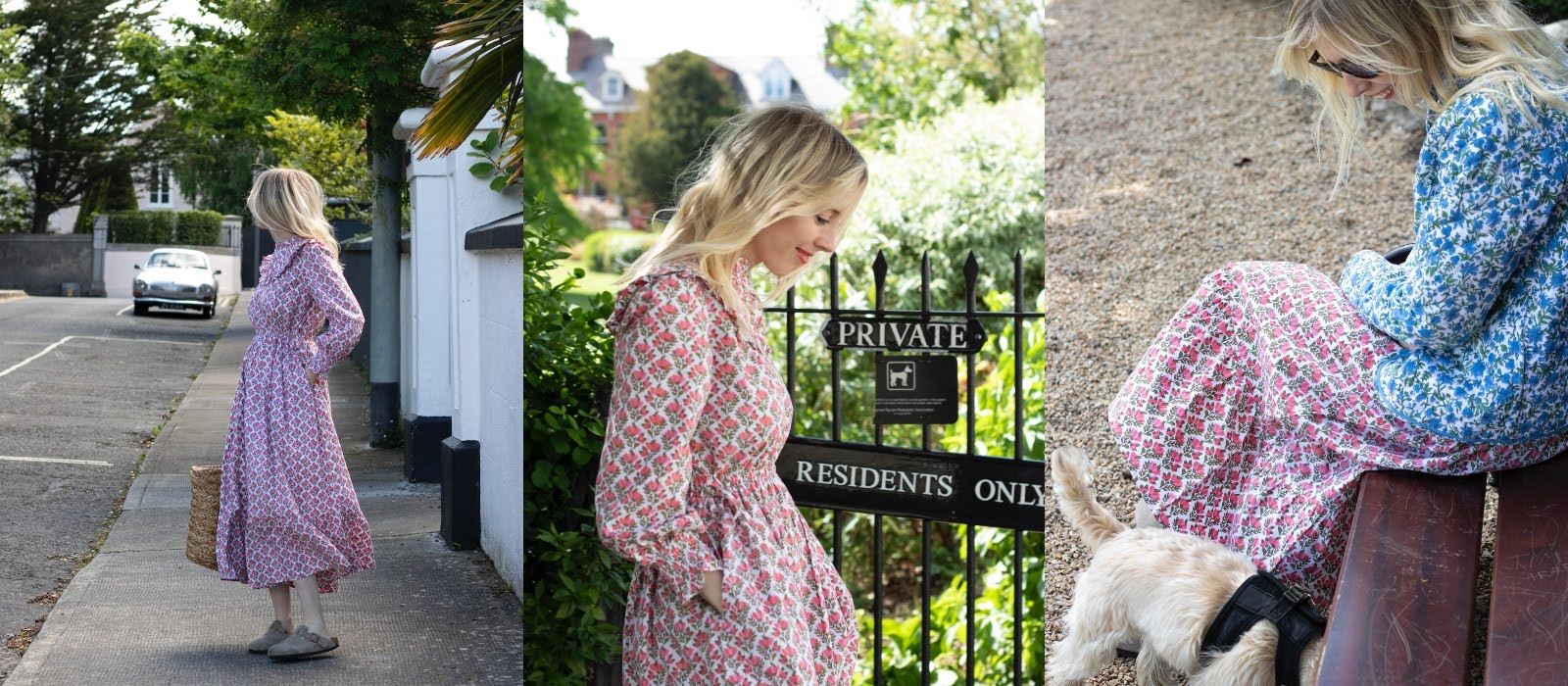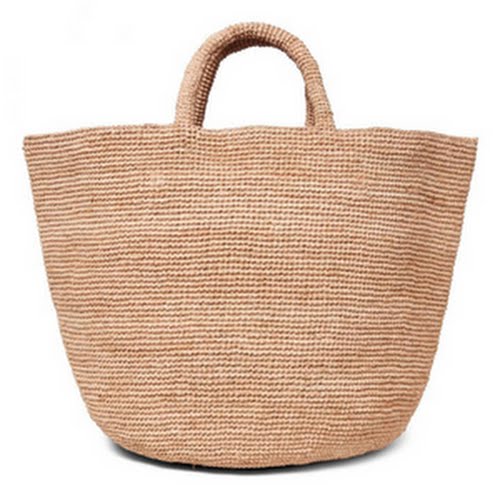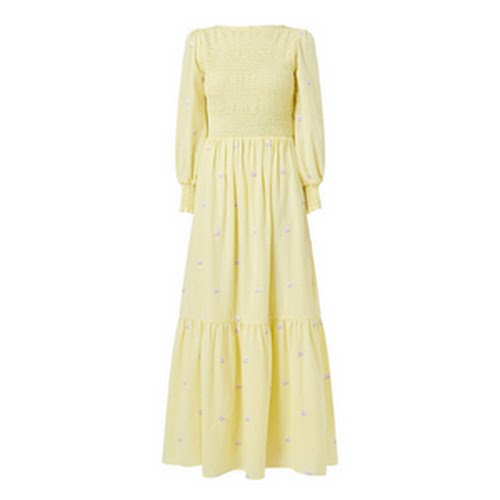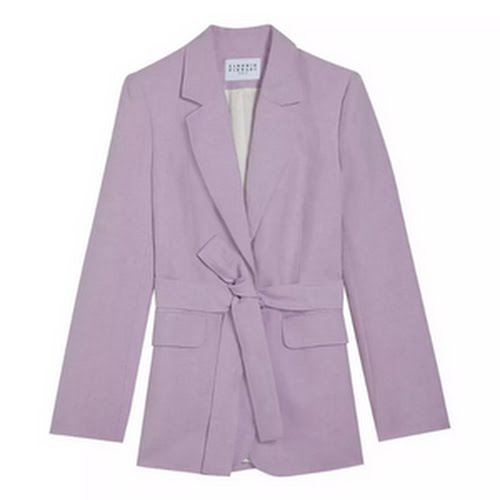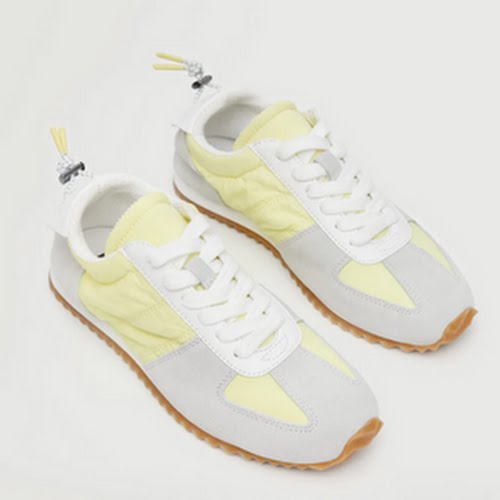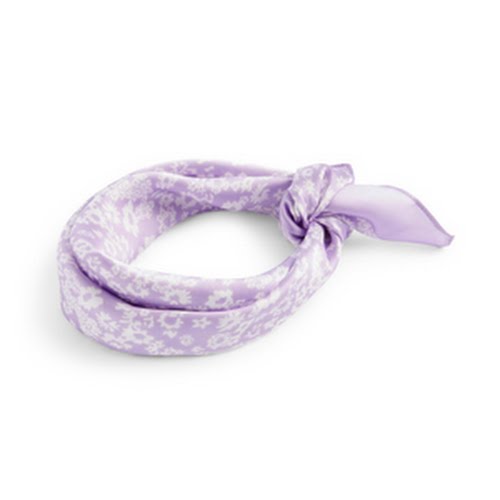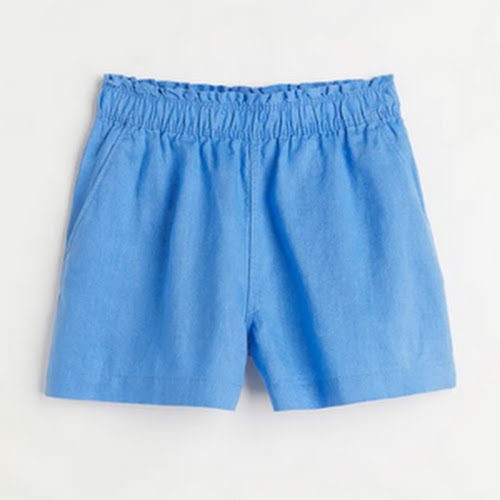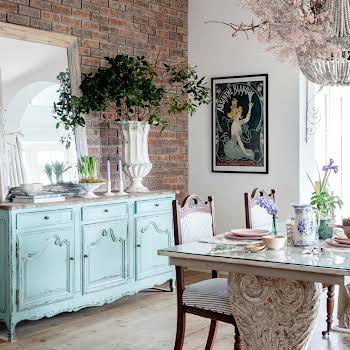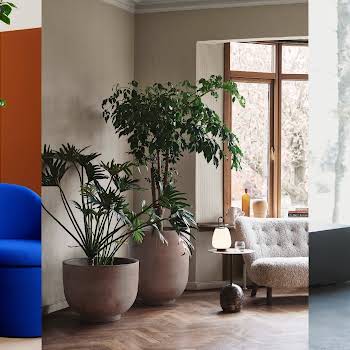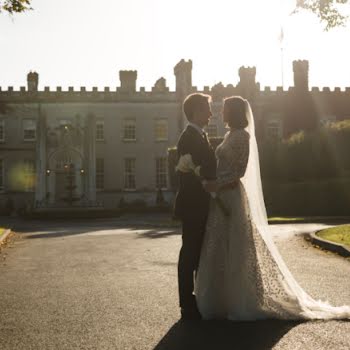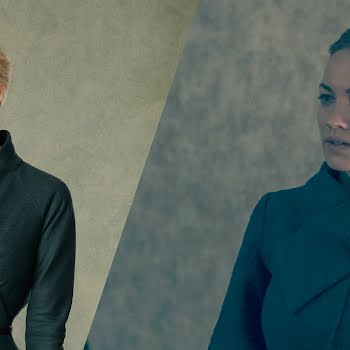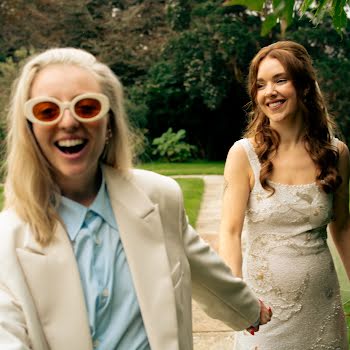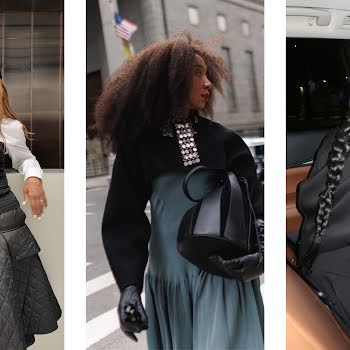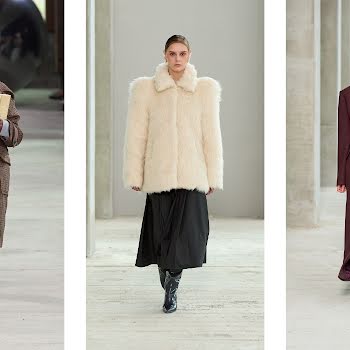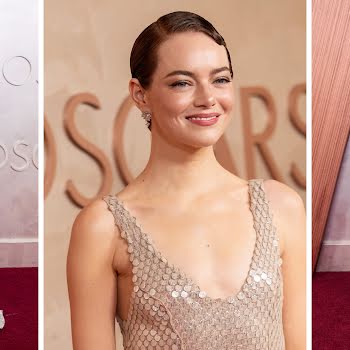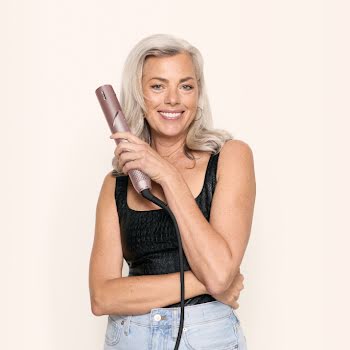
The return of the fashion colour consultation
After a bespoke colour consultation, Sarah Macken embraces the softer side of summer brights.
Bold! Brave! Bright! The recession may have spurred the lipstick index but the post-pandemic world is all about the colour statement. Indeed, the last two years demonstrate that clicking buy on a colourful piece is more than a fashion choice, it’s a power move; a definitive flipping-of-the-bird to the drudgery of pandemic life. The louder the look, the sweeter the taste of freedom.
Post-lockdown, we’re living in a state of technicolour. We watch as Hailey Bieber accessorises an iced latte with a lime blazer. When Harry Styles (that crazy kid) delights us with another rainbow outfit at Coachella, we obsequiously gush. As I scroll Instagram, Stand Studio’s Charleen jacket pops up – a glossy, cropped affair in what I am dubbing a bright shade of Kermit.
Suffice to say, the rush of “dopamine dressing” that flooded our feeds in the midst of the pandemic has yet to flatline. According to Net-a-Porter, the current demand for colour is across the board. The luxury online retailer recorded a 96 per cent lift in sales of green items; hot on its heels was the colour orange, which lifted by 93 per cent, followed by pink at 65 per cent.
As the catwalks nod to Y2K dressing, I haven’t seen such an unapologetic use of colour since the year 2003. It was around then when I co-ordinated fuchsia corduroys with a fluorescent school bag during my after-school missions to George’s Street Arcade. The real showpiece was a matching Hav-A-Hank scarf. (Sadly, bad outfits quite frequently happened to clueless noughties teens.)
Today’s pieces are elevated by premium branding – and tantamount Instagram buzz – but the shades are just as searing. Of course, the fashion goths will snarl at colour, just as the minimalists will bawk: meanwhile, I am in search of an education. If colour is here to stay, shouldn’t we learn to wear it correctly?
I, for one, am not: that’s what I discovered when I had a colour consultation. Yes, just as the fashion world embraces AI and the burgeoning metaverse, institutions like Colour Me Beautiful are having a renaissance. Albeit, a millennial one.
According to Isabel Gleeson, a Dublin-based virtual stylist, knowing how to wear colour has never been so pertinent. This is, largely, thanks to the copy and paste attitude we have to shopping that’s been induced by Instagram culture. “We live in an age where people no longer shop with their complexion in mind,” Gleeson says. “Instead, they see something on someone like Pippa O’Connor and go, ‘That looks amazing on her, I’ll buy it.’” At the recent launch of the Personal Shopping Suites at Kildare Village, Clara Halpin, deputy director of personal and private shopping, elaborates: “There’s a tendency to wear a certain colour because we’ve seen a friend wear it, or been inspired by an Instagram post, when in fact that colour may be completely wrong for us.” Often, the result falls short of the mark. “The wrong colour can make you look drawn or washed out,” Halpin says.
I meet Gleeson over Zoom for a colour consultation – a service that, considering it’s only ever needed once, is reasonably priced at €30. Gleeson carries out most of her styling via Zoom, or WhatsApp; the fee includes a PDF with a personalised colour report and shopping recommendations.
Five minutes in, and we’re down to brass tacks. Can you warm up pale skin with colour? The answer is no. It’s the opposite, as Gleeson explains, who says that being a pale and fair-haired “summer” palette, I should avoid ultra-bright or stark colours. Contrary to belief, a summer is not loud and vibrant, but delicate and feminine.
“The cardinal rule is that the colour worn closest to your face will accentuate similar pigments in your skin tone,” Gleeson says. “Yellow tones will draw out a yellow pigment in the skin, blues will make blue eyes appear brighter, and pinks will enhance the pink in your complexion: something worth bearing in mind if there’s a particular colour you don’t want to embrace.”
Your seasonal recommendation surpasses colour to fabric choices. Gleeson informs me to look for “soft textures like wool, cotton knits and crepes”. I’m advised that yellow is my new best friend.
As are sequins; in fact, anything iridescent will bring brightness to a pale complexion. (Something I didn’t realise, but makes sense.) Gleeson is straight-talking about what I should avoid (bright red, at all costs) and what I should try (steely shades of blue). Interestingly, the colour that suits everyone – complexions are grouped into cool palettes, summer and winter, as well as warm palettes, spring and autumn – is purple.

However, Gleeson’s experience as a fashion buyer at Ted Baker proves it’s a colour people shy away from. They shouldn’t. “A medium, lavender purple flatters warm and cool palettes,” she says. (See Pantone’s colour of the year, Very Peri – a “courageous” purple that inspires creativity.)
It’s little wonder we’re drawn to colour right now, says Ros Duke. The Irish designer, who creates luxurious knitwear pieces from an annex in her back garden in Killiney, has a hard and fast rule when it comes to choosing colours: if it’s natural, it works. “For me, it always comes back to the colours of the earth,” Duke says. Non-artificial shades – indigos, denim, lavender and rust work best – often inspired by local flora and fauna. The hero of Duke’s new collection is a zinging turmeric yellow, something to lift Irish skin tones after a long winter. Her use of colour is instinct-based. “I try not to obsess too much over which colours are received best. But I’ve noticed that soft pinks always do well with my customers.”
My prescription is similarly pastel – think periwinkle blues, pale yellows and lavenders. The key is that every colour should be soft, soft, soft. And you can forget white – or black. Yves Saint Laurent once said, “A woman in a black dress is a pencil stroke.” Should I bid adieu to a colour purely because it’s not my season? I’ve a feeling not everyone would be that compliant.
As I learn, however, there’s no need to panic-buy a new wardrobe. The point of a consultation isn’t to be prescriptive, but to know what colours are your allies. There are shortcuts, too. As Gleeson says, “You can cheat by wearing a scarf in your colour or by a pop of silver jewellery [it suits summer skin tones].”
Some of my results were intuitive. For instance, I know blue is good on me as I tend to get compliments when I wear it. Equally, I’ve noticed that a buttermilk yellow gives pale skin a definite glow. (Something, as an extremely white person, you cherish.)
I break Gleeson’s suggestions into two categories: the familiar, and the unknown. The first is a palette I already own a lot of: warm pinks, dusty lilacs, mint greens and powder blues. The second is uncharted territory: namely plums, aqua blues, teals and taupes (as a pale person, I always assumed the latter would wash me out).
On a midweek day, I road-test the first category for an appointment while working from home. I’ve ticked three of the summer boxes: denim blue jeans, a lilac cardigan and a dusty pink jacket. Underneath, I layer a long-sleeved white T-shirt (old habits die hard). I feel feminine but not saccharine, and I get a compliment for looking “very summer-y”: not too shabby.
My second mission is a little more exploratory. I finger the lush fabrics hanging at my favourite department store, abandoning my comfort zone of serene pastels. Instead, I opt for a Sandro suit in plum, one of the colours prescribed by Gleeson for special occasions. I slip into the two-piece and surprise myself by thinking I have a bit of colour (similar to putting on a layer of a light fake tan moisturiser) although I can’t fight the fact that purple tailoring makes me feel like The Joker.
“Do you think this colour suits me?” I ask the sales assistant, with trepidation. “It doesn’t look terrible on you,” she says, sensing my unease. She adds: “The colour suits your skin tone.” My happy medium is something I already own: a mid-length dress in denim blue by Rixo. I chose well, according to one expert. “The colour blue represents calmness and communication,” Halpin says.
In a sustainable vein, knowing your colours can cut down on consumption. “Take a winter coat that you might wear 200 days out of the year – it makes sense to buy just one in a colour that makes you look your healthiest, your brightest, rather than having multiple colours, none of which feel right,” Gleeson says.
If the experts are right, modern dressing calls for a dialling up of what flatters, rather than what falls into tiny squares on a social media feed. According to Halpin, the benefits of wearing the right colour are underrated. “The energy that colour transmits and radiates is infectious and uplifting,” she says.
A quote from Belgian designer Ann Demeulemeester strikes me: “Black is not sad. Bright colours are what depresses me. They’re so… empty. Black is poetic. How do you imagine a poet? In a bright yellow jacket? Probably not.” I may be giving up black for now, but I’ll maintain some of this swagger, please and thank you.
SOFTLY, SOFTLY
Sarah’s prescribed palette sticks to pale tones.
The 40-minute Perfect Palette colour analysis at Kildare Village costs €100, email personalshopping@kildarevillage.com to book. A virtual Colour Consultation with Isabel Gleeson costs €30, see Instagram @styledbyisabel_ for further details.
Photography by Marlene Wessels. This article originally appeared in the Summer issue of IMAGE Magazine, on sale now. We may earn a commission if you buy something from any affiliate links on our site.
IMAGE Summer 2022
Shop IMAGE Summer 2022 now here, €5.99 + shipping.
Shipping cost: Ireland €3.50, United Kingdom €7.50 and Rest of World €10
Have you thought about becoming an IMAGE subscriber? Our Print & Digital subscribers receive all four issues of IMAGE Magazine and two issues of IMAGE Interiors directly to their door along with access to all premium content on IMAGE.ie and a gorgeous welcome gift worth €60 from The Handmade Soap Company. Visit here to find out more about our IMAGE subscription packages.

